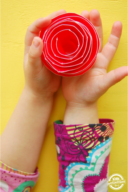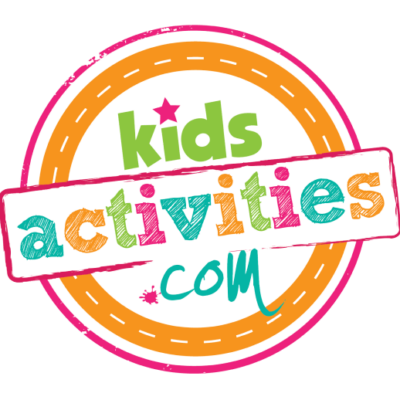If you can answer these questions, your child might be ready to learn how to read!
Knowing when your child is ready to learn to read isn’t quite as cut and dry as you’d think. Despite having a background in teaching, I quickly realized when my children were little, that it’s a tricky process. There’s no lightbulb that suddenly appears above their head and no instant understanding of the reading process. It just doesn’t work like that.

For me, I don’t think there’s ever been a time when I didn’t love to read. I can remember walking to the library with my grandfather and checking out a dozen books each week to take home and devour.
To this day, reading is my go-to favorite pastime; my zen, if you will.
So, I guess always assumed that my kids would somehow magically pick up reading and learn to love it as much as I do. But, there’s a lot of things that have to fall into place before kids are really ready to learn to read. In fact, those processes and steps that they have to master first are huge indicators of how successful they’ll be in their attempts to read.
This post contains affiliate links.
Before tackling books and trying to push a reading agenda, there are things that kids need to be able to do first. These five things help set kids up for decoding, comprehension, and fluency.
You’ll know that your child is probably ready to read when you can answer the questions below with a resounding yes.
How to Know That Your Child is Ready to Read
Does your child have an interest in reading?
I’m not talking about him requesting War and Peace as nighttime reading, I mean, does he like being read to? Does he enjoy looking at books with others or on his own?
Without an interest in reading, it’s going to be difficult to get him to even want to read, let alone be successful at it.
Does your child have print and book awareness?
Simply put, print awareness is being able to identify the printed word and book awareness is being able to identify parts of a book.
When thinking about print awareness, on a page of a book, your child should be able to: identify a word, identify a picture or illustration, recognize both capital and lowercase letters, understand where to start reading on a page, be able to tell where you continue reading when you get to the end of a line, and recognize a period at the end of a sentence.
For book awareness, your child should be able to: demonstrate the correct way to hold a book, identify the front cover, identify the back cover, identify the title of the book, demonstrate how to open a book, and be able to turn to the next page. While these may seem like basic indicators, if . your child is too young, he may not be able to do them. Don’t worry, because practice makes progress!
Can your child understand what’s being read?
Comprehension, the ability to understand what a story is about and who the main characters are, is a huge component in reading. If your child can easily retell the story, or, when asked, give you details about what’s happening in it, that’s a good sign that he may be ready to learn to read.
If he still struggles with understanding basic events and ideas of a story, he may need a bit more exposure to and practice with books – and that’s okay!
Can your child identify letters and the sounds they make?
Before learning to ride a mountain bike, you have to start off on a tricycle. The same concept of progress applies to being able to read. Before you can read words, your child will need to know the letters of the alphabet and the sounds that they make.
Having an understanding of syllables and how to break words into parts is another key component to being ready to read. So is being able to identify beginning and ending word sounds.
This basic skills give your child the foundation he needs to be able to decode unfamiliar words in texts.
Can your child identify rhyming words?
Think about your child’s favorite book. Most likely, there are words that rhyme. Children’s book authors spend a lot of time creating texts that utilize rhymes as a way to teach the rhythm and flow of the written word.
Being able to identify words that rhyme and picking up on the similarities of the sounds – both in print and when read aloud, is an important foundational concept.

Ways to Help Your Child Be Ready to Read
If you looked at the questions above and realized that the answer to most of them is no, don’t panic!
Kids learn at different speeds and at different times. Not all kids are ready to read by kindergarten or first grade. Their brains just aren’t ready and you know what? That’s okay.
Forcing a child to read when he’s not ready is going to cultivate an attitude of negativity and he may end up feeling like he’s not intelligent when, in fact, it’s just that he’s not quite ready. Give him space, give him time, and encourage him.
Here are some things you can do to help him get ready to learn how to read:
•
Read daily – The more you can read to him, the more he’ll grow and begin to pick up the key skills he needs to be ready to read.
•
Take a book walk – A book walk is when you take time to examine a book before you begin reading it. Point out the parts of the book, take a look at the illustrations, make predictions about what you think the book will be about before you read it.
•
Use technology – Don’t be afraid to use online reading programs and apps to help your child develop basic skills. Programs like
ABCmouse.com are a terrific way to build word and phonemic awareness.
Technology not only helps to teach, it makes the experience fun, which in turn, creates an interest in reading.
•
Ask questions – While reading with your child, ask questions! Ask about what happened, who is involved, and what he thinks might happen in the rest of the story. Those questions will help develop much needed comprehension skills and make reading more fun.
•
Play word games – Even when you’re not reading, play word games! One of our favorite car ride games is to find words that begin with each letter of the alphabet. It reinforces letter recognition, beginning sounds, and is a ton of fun to play.
If your child is not ready to read yet, it’s okay. Just keep reading and having fun with books and the written word. He will, in his own time, be ready to learn how to read!
 For me, I don’t think there’s ever been a time when I didn’t love to read. I can remember walking to the library with my grandfather and checking out a dozen books each week to take home and devour.
To this day, reading is my go-to favorite pastime; my zen, if you will.
So, I guess always assumed that my kids would somehow magically pick up reading and learn to love it as much as I do. But, there’s a lot of things that have to fall into place before kids are really ready to learn to read. In fact, those processes and steps that they have to master first are huge indicators of how successful they’ll be in their attempts to read.
This post contains affiliate links.
Before tackling books and trying to push a reading agenda, there are things that kids need to be able to do first. These five things help set kids up for decoding, comprehension, and fluency.
You’ll know that your child is probably ready to read when you can answer the questions below with a resounding yes.
For me, I don’t think there’s ever been a time when I didn’t love to read. I can remember walking to the library with my grandfather and checking out a dozen books each week to take home and devour.
To this day, reading is my go-to favorite pastime; my zen, if you will.
So, I guess always assumed that my kids would somehow magically pick up reading and learn to love it as much as I do. But, there’s a lot of things that have to fall into place before kids are really ready to learn to read. In fact, those processes and steps that they have to master first are huge indicators of how successful they’ll be in their attempts to read.
This post contains affiliate links.
Before tackling books and trying to push a reading agenda, there are things that kids need to be able to do first. These five things help set kids up for decoding, comprehension, and fluency.
You’ll know that your child is probably ready to read when you can answer the questions below with a resounding yes.






















0